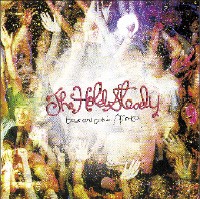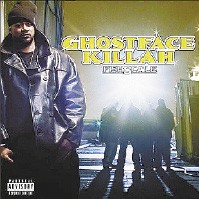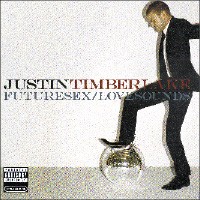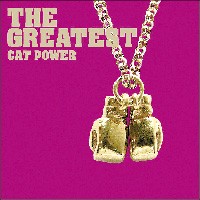After twelve months and hundreds of records devoured, we asked our music critics what 2006 sounded like. Here are their reports:
Chris Herrington:
1. Fishscale — Ghostface Killah (Def Jam): This epic album from the Wu-Tang Clan’s greatest MC artist comes at you in movements. In the first third, Ghostface proves he can spin gripping drug-trade yarns better than any new jack while never once trying to convince you he didn’t long ago rise above that world. The middle third is pure show-off: Luther Ingram-sampling endorsement of child abuse Ghost remembers as good parenting, Willie Hutch-driven battle of the sexes, explosive Pete Rock-produced rave-up. The final third he goes all “Old Jeezy” on us, bringing deep-soul wisdom and moral center to a newly resurgent subgenre (coke-trade rap) desperately in need of it. Throughout, you get a dense collection of grimy crime stories, offbeat boasts and exhortations (“Y’all be nice to the crackheads!”), soaring ’70s soul samples, random bursts of reality (our hero opens one song kicked back at the crib watching Larry King Live), and extravagant production that splits the difference between Bomb Squad and Kanye West. If you’re not a pretty serious hip-hop fan, you might struggle to find a point of entry. If you are a pretty serious hip-hop fan, you can get lost in it. Thirteen years after the debut of the posse classic Enter the Wu-Tang: 36 Chambers and 10 years too late, here’s the best Wu-Tang album since the first one.

2. Boys and Girls in America — The Hold Steady (Vagrant): “You’re pretty good with words, but words won’t save your life,” a woman advises poet John Berryman on the album-opening “Stuck Between Stations,” but songwriter supreme Craig Finn might be singing that line to himself. On Boys and Girls in America, Finn rachets down the verbosity that dominated previous records and gives more conventional song structures (and more conventional singing) a spin. The band also trades in their previous dense conceptualism for something breezier: a theme album about romance amid the kind of messed-up teenage lives chronicled on last year’s Separation Sunday. The result is as observant, compassionate, and subtly funny as rock-and-roll gets. Don’t be surprised that America’s greatest rock band is such a subterranean sensation: With rare exceptions, it’s been that way as long as there have been American rock bands.
3. One Day It Will Please Us To Remember Even This — The New York Dolls (Roadrunner): In a world rapidly turning into an ashtray, David Johansen sees superfluous beauty everywhere, including in the form of the 56-year-old high-heels-and-mascara-wearing man in the mirror. Down to two original members of the classic gutter-glam ’70s band and missing the careening guitar of the late Johnny Thunders, the New Yorks Dolls nevertheless concocted the greatest rock-band comeback album ever, bringing the band’s long-latent spirit of generosity fully to the surface. Where so many codgers making comebacks get hosannas for death records, this is a life record: mortal and eternal all at once. Oh, and my 2-year-old and I both insist “Dance Like a Monkey” is the song of the year.
4. Rather Ripped — Sonic Youth (Geffen): The most durable American rock band ever, Sonic Youth has been making music for nearly 25 years and with a career arc all their own — from free-formish noise to mainstreamish alt-rock to expansive urban-pastoral art jams. And as blasphemous as it may sound to longtime diehards, I’m not sure this outrageously tuneful little gem (studio full-length #14, if you’re counting) isn’t their best album. The prettiest, most bracing guitar album I’ve heard since 2002’s Specialist in All Styles, by Senegalese comeback band Orchestra Baobob.
5. The Devil You Know — Todd Snider (Hip-0): Though he saddles it with a bad song about a worse president, ex-Memphian Snider’s The Devil You Know is the “political” record of the year, a series of bone-deep and defiantly funny character sketches from the wrong side of “a war goin’ on that the poor can’t win.” And those songs are bookended by two personal testaments: In the first, he greets death with a shrug and a smile. On the last, he channels John Hurt with his guitar, tips his hat to hip-hop, tells a great corny joke, and responds to polarizing times with a hymn to uncertainty.
6. Pick a Bigger Weapon — The Coup (Epitaph): This doesn’t peak as high as Party Music, the previous album from this West Coast Marxist hip-hop duo, but it’s more consistent, with an elastic groove that matches the funny, fearless worldview: a desire not just to end the war and close the income gap but to spur a revolution you can laugh, love, and fuck to. Entirely typical verse: “Our pay is unstable and under the table/We like free speech but we love free cable!”
7. FutureSex/LoveSounds — Justin Timberlake (Jive): Epic, weird, luxuriant, sexy — it’s almost blue-eyed D’Angelo and pretty easily the best solo male R&B album since that MIA artist’s 2000 Voodoo. In terms of combining art and commerce — the record of the year.

8. Modern Times — Bob Dylan (Columbia): A beneficiary of the reflexive hype that anything Dylan-related gets these days, the assured Modern Times falls as short of the playfully visionary “Love & Theft” as it rises above the mildly overrated Time Out of Mind.
9. Over the Mountain, Across the Valley, and Back to the Stars — Jennifer O’Connor (Matador): This New York singer-songwriter’s smart, concrete, and evocative lyrics are the kind of plainspoken song-poetry I can get with; her slices-of-life about driving home from the airport after dropping off a lover or missing her sister the kind of commonplaces you relate to even without a lover or sister of your own. And though there’s sadness here, O’Connor never wallows in it.
10. Be Your Own Pet — Be Your Own Pet (Ecstatic Peace): On this 15-songs-in-33-minutes romper-room rush of a debut, 19-year-old Jemina Pearl’s voice-control goes haywire, with high-pitched woops erupting mid-lyric. Her teen band operates the opposite way: The songs usually start with a sound and spirit reminiscent of the way Who songs ended — as instrument-crashing finales — but hooks reach out through the clamor to pull the songs together. In conjunction with an endearing blend of snark and sincerity, the result to-tal-ly rocks.
Honorable Mention: Hell Hath No Fury — Clipse (Star Track/Arista); I Am Not Afraid of You and I Can Beat Your Ass — Yo La Tengo (Matador); Rabbit Fur Coat — Jenny Lewis & the Watson Twins (Team Love); Standing in the Way of Control — The Gossip (KRS); Game Theory — The Roots (Def Jam); The Hardest Way To Make an Easy Living — The Streets (Vice/Atlantic); Whatever People Say I Am, That’s What I’m Not — Arctic Monkeys (Domino); Crazy Itch Radio — Basement Jaxx (Astralwerks); Murray’s Revenge — Murs (Record Collection); Taking the Long Way — Dixie Chicks (Columbia).
Top 10 Singles: “Check On It” — Beyoncé; “Kick, Push” — Lupe Fiasco; “The Long Way Around”– Dixie Chicks; “Crazy” — Gnarls Barkley; “My Love” — Justin Timberlake; “Ring the Alarm” — Beyoncé; “Your Man” — Josh Turner; “Cheated Hearts” — Yeah Yeah Yeahs; “Goin’ Down” — Yung Joc; “Tim McGraw” — Taylor Swift.
Stephen Deusner:
1. Boys and Girls in America — The Hold Steady (Vagrant): This is the short-story collection after the best-selling novel: Craig Finn dumps the drug-epic storyline in favor of small song-length chunks of street narrative, with no loss of impact or quality. Amazingly for an indie band, the Hold Steady are completely unashamed to rock you, which explains why they amped up the Springsteen power chords and wrote “Chillout Tent” as Grease for hipsters. Dave Pirner never had it so good.

2. Everything All the Time — Band of Horses (Sub Pop): Following the collapse of Carissa’s Wierd, Ben Bridwell regrouped with Band of Horses and made the album that the upcoming Shins record will no doubt get compared to. Unfavorably. “The Funeral” in particular is an indie guitar anthem that manages to be more epic than the Arcade Fire and more intimate than Damien Rice.
3. FutureSex/LoveSounds — Justin Timberlake (Jive): The local boy’s album wasn’t hot because it reimagined Timberlake as the white, male Missy Elliott but because it reimagined boy-band pop as a loose pickup game where Three 6 Mafia’s nonchalant cameo sounds like they were just in the neighborhood and where the homoerotic flirting between Timberlake and producer Timbaland goes un-commented upon.
4. The Greatest — Cat Power (Matador): Chan Marshall returned to Memphis to record her seventh album, plus she cleaned up her act: She scheduled a new tour after nervously canceling early shows, allegedly stopped drinking, shilled for Lagerfeld, and showed she could be pretty funny. Her big year, though, was just a backdrop for The Greatest, which plugged into local history to create a new genre: indie soul.
5. Return to Cookie Mountain — TV on the Radio (Interscope): Too much New York boho/indie music never looks beyond the five boroughs, expecting the fly-overs to come to their streets. But TV on the Radio’s second full-length, which draws on doo-wop, jazz, hip-hop, ’90s indie rock, and psychedelia, captures the current life-during-wartime unease of dissident patriots across the country and admirably tries to take in the horrors of Katrina in “Wash.” In other words, Brooklyn’s too small for them.
Honorable Mention: El Perro del Mar — El Perro del Mar (Memphis Industries/Control Group); Writer’s Block — Peter Bjorn and John (Wichita/V2); Are We Not Horses? — Rock Plaza Central (self-released); Silent Shout — The Knife (Mute); Jag Vet Hur Man Väntar — Vapnet (Hybris).
Werner Trieschmann:
1. Rather Ripped — Sonic Youth (Geffen): Those of us fiercely devoted to the more mature, latter-day Sonic Youth have been rewarded with consistently good albums starting at Washing Machine and going forward. Rather Ripped, however, is a great album, a revelatory rock-and-roll artifact from the thrilling beginning (“Reena”) to the moody end (“Or”). Their guitars have never sounded better, and Kim Gordon, who usually contributes a clangy wad of tuneless noise, is out in front of “Turquoise Boy,” the prettiest song in the entire SY catalog.
2. Use These Spoons — Heypenny (self-released): Ben Elkins lives in Nashville and works as producer and performer on the margins of the indie-rock world. His debut CD under the moniker of Heypenny was one of the most overlooked of 2006. The clever and dreamy indie pop recalls Sufjan Stevens — only Elkins has a better voice.
3. Take the Long Way — Dixie Chicks (Columbia): I don’t care about the politics or the supposed move away from country or continued lack of radio play. The heart of this gorgeous album beats with domestic dramas that are, incredibly, no less compelling because the Dixie Chicks are enormous stars. Also, Natalie Maines just happens to be the best singer on the planet.
4. White Trash with Money — Toby Keith (UMG): Hey, Toby Keith on the same list as the Dixie Chicks? Huh? Sorry, put away your haterade for this artist who happens to be at the top of his game even if the majority of American music critics would rather bathe in acid than listen to his work. Nobody in country was celebrating the working stiff with as much wit, flair, and, yes, warmth.

5. We Shall Overcome: The Seeger Sessions — Bruce Springsteen (Sony) and 3121 — Prince (Universal): Two ’80s heroes return with records that build upon (in Prince’s case) and divert from (in Springsteen’s case) the signature sound that brought them riches and fame. Springsteen found his inner folkie (even if his huge backing band made a big supporting racket) and Prince kept making his own brand of weird funk.
Honorable Mention: No Rope — Chris Knight (Drifter’s Church); Let Me Wear Your Coat — Ho-Hum (Max Recordings); Boys and Girls in America — The Hold Steady (Vagrant); If You’re Going Through Hell — Rodney Atkins (Curb); FutureSex/Love Sounds — Justin Timberlake (Jive).
Andrew Earles:
1. Silver — Jesu (Hydrahead): To be kind, once I turned 20 or so, Godflesh wasn’t exactly “to my taste.” Justin K. Broadrick’s calling card from 1988 until 2002 (after leaving Napalm Death at age 16) was a long stretch of misfires with occasional greatness, which his latest project, Jesu, completely shames. Early Swans meets My Bloody Valentine meets perfect pop, and even though those three things have been around for a while, it’s never been done like this.
2. Pink — Boris (Southern Lord): Another case of bombast meets shoe-gazer rock. It’s odd that a band this brutal and heavy gets the amount of favorable press that Boris racked up in 2006, and for a reference point, they are far more unbridled and discordant than other heavy and brutal bands that get a lot of positive press, like Mastodon.
3. The Obliterati — Misson of Burma (Matador): The comeback album that’s better than the actual comeback album (they released the reunion On/Off in 2004), The Obliterati erases all other angular guitar rock, most of which is made by people half Mission of Burma’s age.
4. The Night Ripper — Girl Talk (Illegal Art): Party music made from 100 percent illegal samples. So dense that the craft and result is very similar to the traditional construction of pop music. Catchiest album of the year, hands down.
5. Since There Were Circles (reissue) — Bon Lind (RPM Records UK): An import at domestic price (check Amazon), Since There Were Circles was Bob Lind’s “lost” album from 1972, released and swept under the rug before Lind retired from music. This differs greatly from Lind’s two 1966 baroque folk-rock albums (those are essential as well) in that it carries a Buffalo Springfield country-rock vibe common to the time period. Features a guest performance by Gene Clark and Doug Dillard that no one seemed to know existed. It’s worth spending days or weeks obtaining this for the title track alone.
Honorable Mention: You in Reverse — Built to Spill (Warner Bros.); Don’t Fear the Reaper — Witchery (Century Media); Instinct: Decay — Nachtmystium (Southern Lord); Thunder Down Under — Hot Snakes (Swami); Ticket Crystals — Bardo Pond (ATP Recordings).
Best reissues
Andria Lisle:
1. Fonotone Records 1956-1969 — Various Artists (Dust-To-Digital): The limited-edition bottle opener, dozen-plus color postcards, and 160-page book are cool, but what truly makes this five-disc box set unique is the track listing: 131 songs hand-picked by musicologist Joe Bussard, including hollers, rags, and jug-band numbers which rival Harry Smith’s vision for the legacy of American folk music.
2. Rockin’ Bones: 1950s Punk and Rockabilly — Various Artists (Rhino): From its pulp-fiction packaging to the sheer rarity of some of these tracks, this raucously raw four-disc set connects the dots between household names (and hometown heroes) like Presley and Perkins to lesser-known but just as fervent cats and kittens such as Jackie Gotroe, Barbara Pittman, Elroy Dietzel, and Pat Cupp.
3. What It Is! Funky Soul and Rare Grooves (1967-1977) — Various Artists (Rhino): Pure American pop culture — presented as the flipside to Rockin’ Bones — this is nearly 100 tracks culled from the Warner Bros. vaults, including monster tunes from Rufus Thomas and the Mighty Hannibal, Baby Huey, and Howard Tate. Unless you’re a serious DJ, forgo the record collecting and buy this box set.
4. Nashville Rebel — Waylon Jennings (Sony Legacy) and Live at San Quentin — Johnny Cash (Sony Legacy): The original outlaws of country music, comprehensively and stylishly presented. Jennings gets a career-spanning four-disc box which encompasses his early attempt at Nashville stardom and his rise to glory with hits such as “Highwayman” and “Are You Sure Hank Done It This Way.” Cash’s ’69 jail recordings are newly scrutinized, analyzed, and dissected, with songs that once landed on the cutting-room floor deservedly restored to the set list.
5. There Is a Season — The Byrds (Sony Legacy) and The Complete Reprise Sessions — Gram Parsons (Rhino Records): From inception to swan song, 99 songs mined from the McGuinn/Clark/Hillman/Crosby catalog, illustrating not only the rise and fall of one of California’s best bands but the evolution of folk rock in general. Special kudos for including both sides of the Elektra Records single by the Beefeaters, a precursor to the Byrds. Cue this one up before playing Parsons’ solo oeuvre, lovingly restored and augmented with outtakes and rare audio interviews, and rediscover Americana once again.